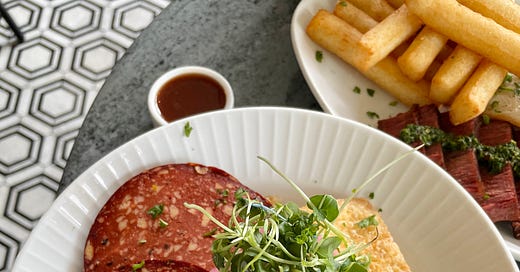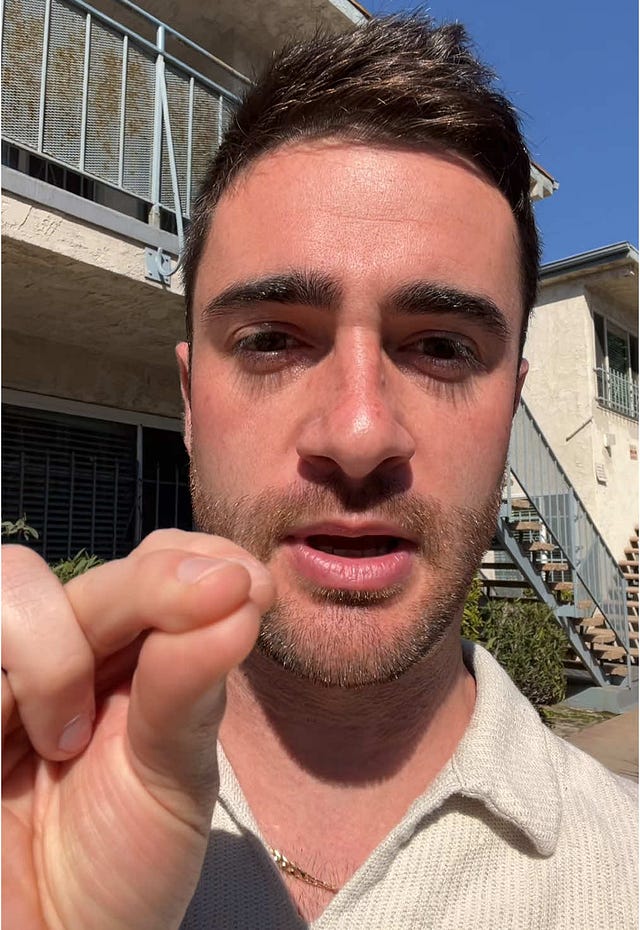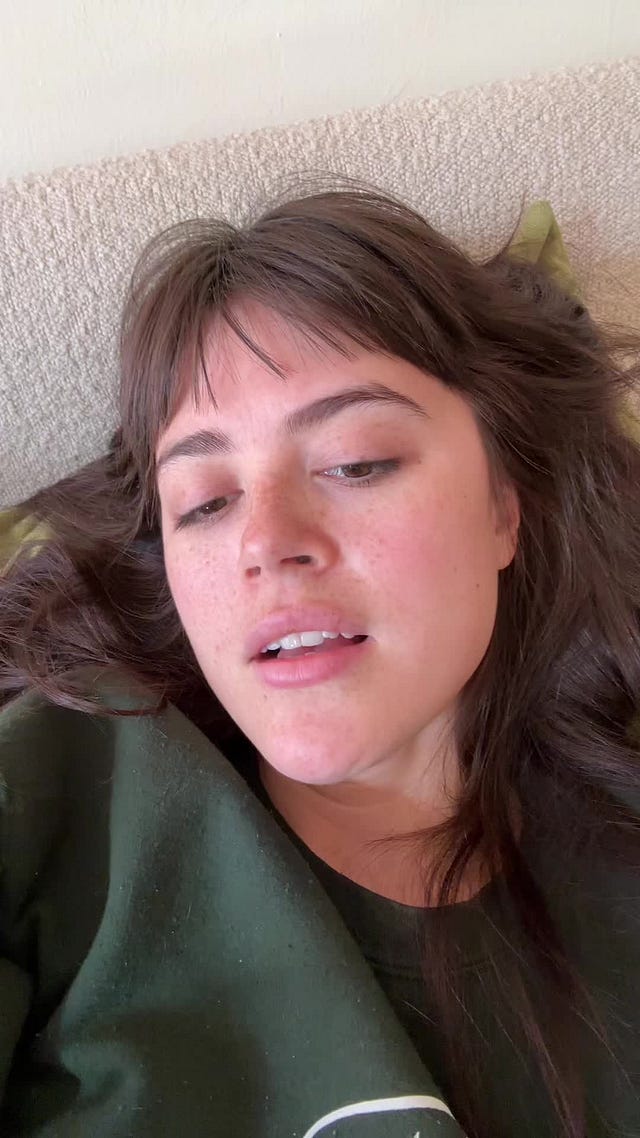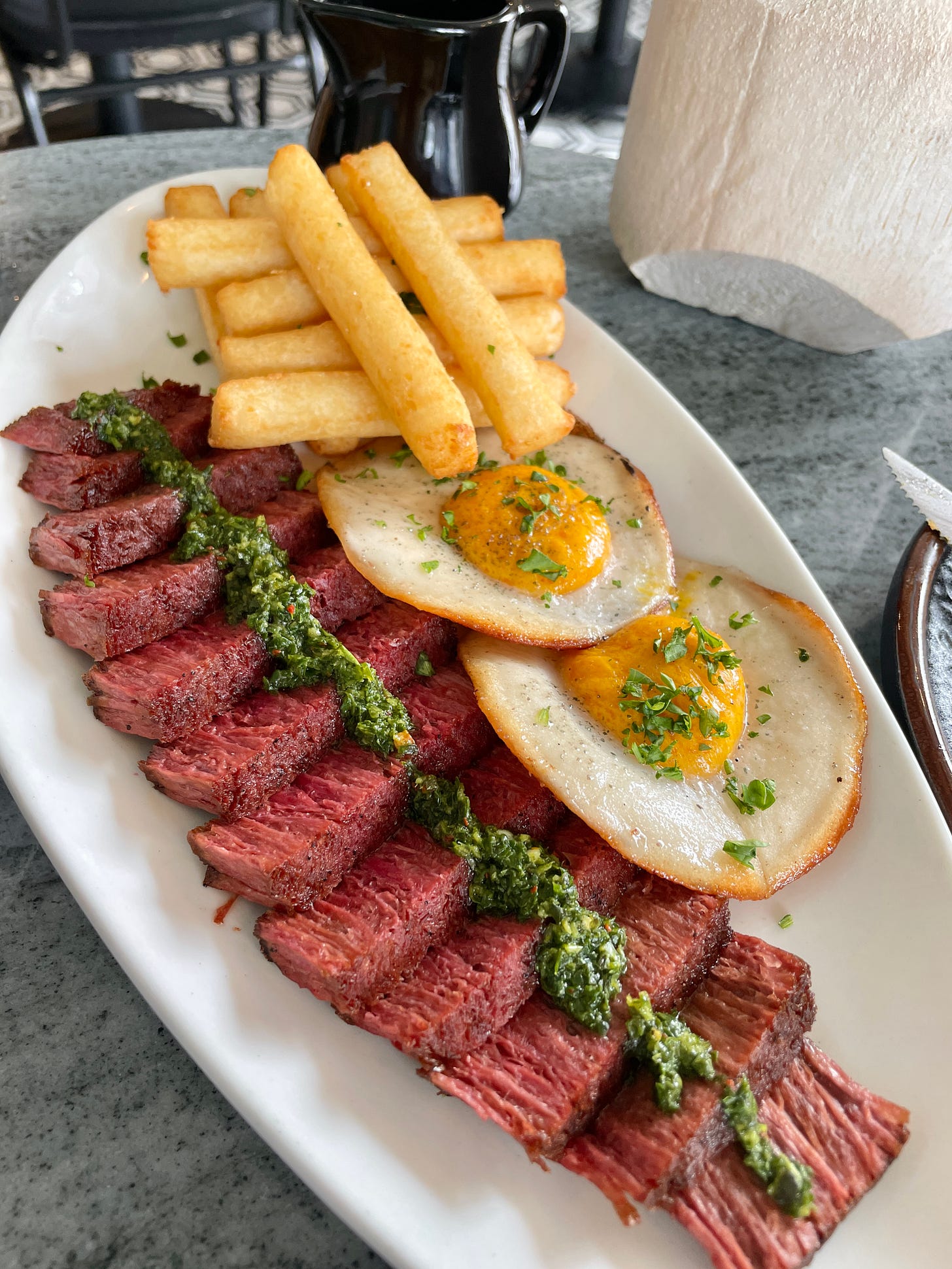#31: A box of assorted stories from my Notes app
vignettes on singles events, robot love, and making time
I’ve had writer’s block this week. You know that feeling when you want to post something on social media but you hesitate because you’re worried about judgment from evil eyes? That feeling creeps into my thoughts around posting here too. Ask a Hedonist is usually my safe space to explore ideas freely from people who opt into reading about them, but I still find myself wondering if I’m saying anything worthwhile. The pressure to keep writing “good” essays is paralyzing.
But I was looking at my Notes app, which is where I dump all my different thoughts and observations that later become newsletter fodder and realized I had collected several little stories about love, connection, and non-monogamy that I want to tell but don’t have enough for a longer post. So instead of one polished essay, you’re getting a handful of shorter vignettes. Consider this my Valentine’s day gift to you: an assortment of relationship complications, some sweet, and some bitter.
Where are all the men? I’m hosting a v-day soirée for singles this Friday, and see something interesting happening with the rsvps. Women appear to be buying their tickets immediately, while men are all hovering at “maybe.” We have this incredible group of mostly women confirmed (seriously, they’re sooo hot and so cool) but we have maaad men who remain in perpetual “I’ll think about it” mode.
I didn’t know this was a phenomenon until I saw this event series called Suede post about how it’s very typical for them to see that men are late to buy tickets or may not buy tickets at all. I’ve seen videos and photos from this event and once again these women are fine as hell so you’d think men would be vying for a ticket, but no.
Then I saw a video on Tiktok about a corn hole speed dating event offering to pay to find single men to attend because women keep showing up to attend while men stay home.
It’s everywhere once you start to notice it. When it comes to dating events especially, women are putting themselves out there while men are hanging back.
After countless of conversations with single men, I think the pattern I see is that they want to be in relationships or to be dating women but seem resistant to doing anything that might actually lead to it. They don’t want to be vulnerable. They don’t want to say they’re attending a dating event. They want love to just happen while they swipe endlessly on apps they claim to hate. If they want their meet-cutes I think they shouldn’t actively avoid all the places where the meet-cutes could happen. What do you think?
Planning this Valentine’s event had me wrestling with language, and you know I live to find the right words to capture a complex sentiment. This is an event for singles, but especially as someone who is not single but also available to date I want to be inclusive of other non-monogamous people. It’s my event after all. And we were so intentional about being inclusive, explicitly saying that people of all gender identities and sexual orientations were welcome. But the challenge is I want to signal this openness for poly people without making monogamous people feel like it’s a “poly event.”
I talked about this valentine’s day event as I caught up with friends at my recent monthly Chinese Dinner and over and over people asked if poly people could attend, naturally. So when I made a big announcement to the whole group about the event I made sure to say “yes poly people can come too!” but later someone from dinner messaged me asking “so what is the timeline for your poly event?” It reminds me of when straight people see a queer-friendly space and assume it’s exclusively queer. Making space for everyone somehow gets interpreted as making space for only some.
I watched the movie “Companion” this weekend, a horror-comedy about a g uy who brings his robot girlfriend to meet his friends at a mansion cabin in the woods. I won’t give away too much (don’t even watch a trailer if you’re going to see it), the robot is customizable down to her intelligence level. He sets hers at 40% btw—ew. The moment she starts developing independence or expressing negative emotions, he wants to shut her down.
I’m sure you can make an argument for how AI companions can help with loneliness, but if they’re programmed to just service you and to never challenge you, that doesn’t replace genuine human connection. Real relationships with people come with friction. To be in genuine relationships with other people means sometimes being uncomfortable, having disagreements, and not getting your way. I see a parallel between this and how gen z/younger generations are setting new boundaries at work, some of them good, but some of them are about avoiding any hint of discomfort of challenge. But growth comes from that friction and from moments of productive discomfort.
Louis made an interesting observation about how AI relationship stories have shifted. It used to be that robots were the villains, threatening to overtake humanity but now humans are the monsters. It reveals our desire to control and contain, and our resistance to genuine connection with beings who have their own autonomy and needs.
In Jessica Grose’s article about “Companion,” she cites a study from Survey Center on American life showing how pessimistic single women are about marriage. They’re seeing the same pattern, and it’s that many men want partners who provide care and affection without requiring too much emotional labor or growth in return.
My friend hosted a comedy + music show at Baby’s All Right last month, and there I watched former SNL writer Alex English absolutely kill it with a joke about people coming out as queer while still harboring a lot of self-hatred that they project on other people. “You’re not finished” he said, “Get back in that closet and cook some more, cause you’re not done.”
Monogamy can be lovely and it works well for a lot of people. But later I was thinking about how if you consider the timeline of how a traditional person might live their life, the relationship narrative follows that you’re supposed to meet someone who you will be monogamous with for the rest of your life in your 20s or 30s and then….that’s it. Done cooking. No more falling in love with anyone else, no more intimate exploration, just decades of monogamy stretching ahead. we accept that people grow and evolve in every other area in life, but in this domain they are supposed to stay frozen in time.
I keep hearing stories about people trying to catch their partners doing things theyre “not supposed” to do— watching porn, liking someone’s thirst trap on social media, whatever. Instead of seeing their partners as dynamic individuals with desires, curiosities, and interests, they’re obsessed with control for control’s sake (it seems). They want to shut their partners desires down, but later wonder why their partner’s erotic energy for them has completely flatlined. Human partners are not robots you can customize, whose parts you can just shut off when they make you uncomfortable.
I feel the need again to make the disclaimer that monogamy genuinely works for a lot of people. But making any relationship structure the unquestioned default means many people end up feeling stifled, suppressing their desire for continued growth and exploration. Some people need more time in the kitchen, and that’s fine.
Besides questions about jealousy, another question I get most about non--monogamy is always about time management. “How do you have time for multiple relationships?” Yes love might be infinite but time sure isn’t. It takes time to build multiple connections.
I find it interesting that I have friendships where we’re in daily contact, celebrating each other’s wins, deeply invested in the minutiae of each other’s lives, spending quality time together regularly, and no one thinks it’s peculiar to have multiple friendships at this level of intimacy. Yet multiple romantic relationships? Impossible to fathom.
I’d love to see a shift in how we think about romantic relationships. Why do they need to be more important than friendships and why do they need to require a majority of our time? Some of my romantic relationships have frequent contact, others less so. Same with my friendships. The frequency doesn’t determine the depth or importance. It’s about finding the rhythm that works for each unique relationship.
If you’re reading this and thinking that obviously you want your romantic relationship to be primary in your life and take up most of your time— that is completely valid. The point isn’t to suggest that everyone approach relationships in one way. The point is that there are so many different ways to love and live. There’s nothing inherently wrong with having multiple relationships, or with not wanting your romantic relationships to consume a majority of your time. If we can accept that friendships come in a variety of formats, why can’t we extend that same flexibility to romantic love?
If you want to, you make the time. And you can also decide how much time that is.
As always, thanks for reading these little observations. They’ve been cooking in my notes app for a while and I’m glad I got to share them here. Do me a favor though, text me or bring up your own thoughts the next time we chat? I find it really useful to hear what you have to say.
Just skipping straight to food this week cause I feel like it. I just ate at HAAM (Healthy as a Mutha), a vegan Dominican and Trinidadian restaurant. Dominican food is famously heavy on pork and beef, so as a non red meat eater I’ve missed out on a lot of these dishes. But HAAM gave me my chance. Would you believe the photos below don’t have any meat? It’s all seitan, and even the eggs are vegan, made from beans.
You’ll have to take my meat authenticity review with a grain of salt given I haven’t had red meat since I was 15, and I don’t think it exactly tricks your taste buds. But it definitely satisfies the craving for Dominican flavors, and bottom line, it was really tasty. Totally recommend this spot if you’re looking to try vegan versions of traditionally meat dishes. And it’s a Black-owned business. Happy Black History Month.











